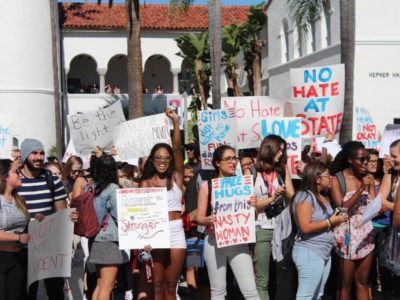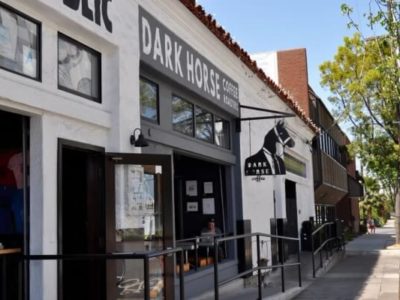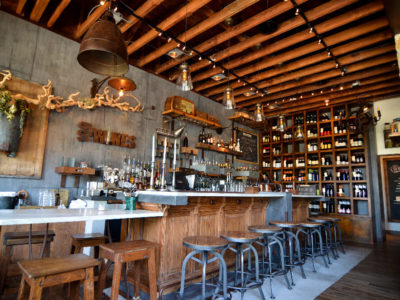San Diego means endless sunshine, perfect weather and some seriously amazing authentic Mexican food. And, of course, these San Diego State University orgs dedicate themselves to matching the positivity of those traits with the positivity of equal rights. These SDSU organizations have their sights set on promoting equality, and they are ready to fight for justice.
These student organizations at SDSU will broaden your cultural horizons and help you start fighting the social issues in our society.
1. Student African American Sisterhood (SAAS)

Are you passionate about social issues concerning the African-American community? You’ve got to check out SAAS. This organization discusses important social injustices that plague black men and women. “[We focus on] equality and encouraging our members to step outside of the box and get outside their comfort zones and follow their passions,” said SAAS president and senior Markajia Simmons. “We focus on open organization—where men are included in the meetings as well, just so that we can make a platform for both men and women to speak on political and social injustices that happen inside of our communities.” If topics such as how to get equal treatment and financial resources into the African-American community, civil and social rights excites you, you’ll definitely get a start at this powerful sisterhood at SDSU.
2. International Youth and Students for Social Inequality (IYSSE)

Have you ever started walking to your class near Hepner Hall and noticed a plethora of students with picket signs? That passionate group goes by the name of the IYSSE. Both students and non-students alike make up the IYSSE to zealously fight for solutions to current social issues. Although they have received some backlash for representing the Socialist Equality Party, IYSSE has stood by their promise: to fight for what is right and just. Just last February, the org led a huge rally in San Diego in defense of immigrant rights. If you’ve got a passion for organizing and attending protests, definitely check them out.
3. Women in STEM

“You don’t look like an engineer.” “Don’t you want a family one day?” “Why didn’t you major in something easier so you can stay at home one day?” These questions constantly plague women in S.T.E.M. (Science, Tech, Engineering, Mathematics). This organization consistently fights the stigma by asking their own questions in return—why are these fields considered only male professions? Why are only men encouraged to pursue careers in STEM? Why aren’t female scientists given a voice? Member Anne Hedlund said “I joined in part due to the negative political climate surrounding the political election…it was time to stop complaining and do something about it.” Not only do they fight back by confronting stereotypes and stigmas, but they also work to support the women around them and turn them into a powerful force.
4. Native American Student Alliance (NASA)

If you immediately facepalm when you see the fashion headdresses and glitter “war paint” of Coachella, then join NASA. Led by Native American students, the organization tackles important conversations and social issues regarding racism, cultural appropriation and injustices towards Native Americans. President of NASA and descendant of the Nez Perce, Yakama Nation and Tongva tribes Marissa Mendoza felt driven to join NASA by both her heritage and sense of justice. “I joined simply because the effects of history on native families in California. My Native heritage—my identity—in my family hasn’t always been acknowledged or expressed. A lot of it has to do with the fact that at one point in California it wasn’t legal to be native,” said Mendoza. Historically, Native Americans have been marginalized and brutally mistreated throughout American history. Mendoza said, “The real problem stems from non-Native people’s use of dehumanization which has allowed cultural appropriation to happen, which is encouraged and embodied by the university [by promoting the Aztec mascot].” NASA deals with issues both global and distressingly personal. They’re currently fighting the racist use of the Aztec mascot here at SDSU. If you’ve come to campus prepared to fight injustices wherever you find them, make your voice heard by joining NASA.
5. SafeZones@SDSU

Imagine living your life in fear of being ostracized, physically or mentally abused for something as simple as for being who you are. Unfortunately, many lesbian, gay, bisexual, transgender, intersex and queer SDSU students face this issue daily. Students created SafeZones@SDSU to provide refuge for any LGBTQQIA students who are seeking a safe atmosphere to relax, mingle and find support. SDSU Pride Center Coordinator Christopher Lujan said, “It is my job to provide educational opportunities for the campus to engage and learn about the LGBTQ+ communities.” SafeZones@SDSU strives to combat gender and sexuality-based harassment both on campus and off, hosting events like the Stop the Hate campus rally. Co-chair and co-founder Susan Cayleff said, “I am the proudest to have trained over 2,000 campus rallies, initiated SafeZones as a response to campus need, and worked to be much more Trans inclusive and responsive.” Everyone at SafeZones@SDSU wants you to know that you are not alone—and that you rock the way you are.
6. Asian & Pacific-Islander Student Alliance (APSA)

Whether you want to know more about your heritage or learn about Asian Pacific culture, APSA has your back. This org’s mission has a come-one-come-all vibe, welcoming people of all ethnicities to join and learn more about the Asian Pacific culture. If you’ve got interest in learning more about the diverse traditions and beliefs of Asian Pacific culture, you’ve got to check out APSA’s annual Night Market. Filled with bomb food and even cooler performances, Night Market encompass what APSA is all about—culture, food and sharing it with others.
7. Counseling & Social Change Club (CSCC)

Sometimes with all the horrible news that seems to be everywhere you look, it can feel like you can’t do anything to help make things better. But CSCC just might have the key to wipe away your doubts. Their inspiring guest speakers, meditation yoga and fun game nights makes learning more about social issues and change both engaging and useful. And while CSCC definitely knows how to throw a party, they also know how to talk about important social issues at hand. Last November, they hosted a group meeting with the non-profit organization, Generate Hope, who supports sex trafficking survivors. Even if you’re not a psych or counseling major, CSCC provides a great place to learn more about involving yourself in important social issues.
8. Chicanos/Latinos for Community Medicine (CCM)

“[Latinx people] compose 27 percent of the U.S. population and yet only 5 percent are physicians,” CCM’s mission statement reveals. This disproportionate statistic inspired the creation of CCM, so that Latinx people who have a passion for the field of medicine and healthcare get every opportunity to learn and grow within their discipline. If you have a passion for aiding the community, take initiative by joining CCMs goal of creating culturally sensitive and competent leaders. Chicano/Latino communities are extremely underserved and deserve to be represented by strong men and women who want to make their community healthier and happier. CCM helps by offering scholarship, internship opportunities and connections into the healthcare field.
9. Muslim Student Association (MSA)

MSA’s mission focuses on counteracting the difficulties and discrimination that many Muslim students face and educating others about what it means to be a Muslim. MSA’s mission includes not only Muslims, but all marginalized people of color. “The cool thing about MSA, or any Muslim community, is that you’ll always find a huge amount of diversity,” said MSA president Tessa Wiley. Students of all ethnicities and backgrounds make up MSA’s membership, because the organization opens itself to anyone who wants to learn more about Islam and the greater problems the Muslim community faces. That could mean hosting a rally for the Muslim woman who was attacked two years ago in the parking deck, or it could simply mean hosting a question and answer meeting about the Quran. If you believe in religious freedom and facing down religious and cultural intolerance, MSA will gladly have you on board.
10. Andrea O’Donnell Womyn’s Outreach Association (AOD WOA)

At her legendary TedTalk, Chimamanda Ngozi defined feminist once and for all: “Feminist. A person who believes in the social, political and economic equality of the sexes.” That belief lies at the heart of WOA, an organization dedicated to ensuring that all men and women are treated equally in all aspects of life. Senior and president of WOA Julia Goldberg found her enthusiasm for feminism by going to SDSU, which gave her the perfect place to make her voice heard. Goldberg said, “WOA addresses more important structural issues like sexual assault, racism or ableism. WOA has been a great space and outlet in discussing those important women’s rights issues. Take Back the Night is WOAs most meaningful event because it addresses sexual violence on campus from a student standpoint,” said Goldberg. The battle for gender equality didn’t end with the right to vote, after all. It’s our turn to take up the torch.















